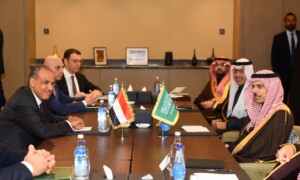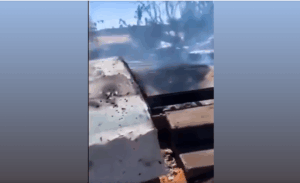Int’l diplomats call for restoration of freedom of expression and media freedoms in Sudan
Leading members of the diplomatic corps in Khartoum, have underlined their “steadfast support of the Sudanese people” to achieve the rights to freedom of expression and media freedoms.
A joint statement signed today by the Ambassadors and Heads of Mission to Sudan of Canada, Norway, Spain, France, Japan, Sweden, Germany, Ireland, United Kingdom, Republic of Korea, United States of America, the Netherlands, and the European Union, laments that the October 25 military coup has stalled, and in some cases reversed the progress made following the December 2018 uprising (that culminated in the overthrow of the 30-year Omar Al Bashir dictatorship in April 2019).
 File photo
File photo
Leading members of the diplomatic corps in Khartoum, have underlined their “steadfast support of the Sudanese people” to achieve the rights to freedom of expression and media freedoms.
A joint statement signed today by the Ambassadors and Heads of Mission to Sudan of Canada, Norway, Spain, France, Japan, Sweden, Germany, Ireland, United Kingdom, Republic of Korea, United States of America, the Netherlands, and the European Union, laments that the October 25 military coup has stalled, and in some cases reversed the progress made following the December 2018 uprising (that culminated in the overthrow of the 30-year Omar Al Bashir dictatorship in April 2019).
“Following the December 2018 uprising, Sudan took some important steps in improving human rights protection. Sudan signed the Global Pledge on Media Freedom and joined the Media Freedom Coalition. The oppressive Public Order laws were abolished, Female Genital Mutilation was criminalised, and the Transitional Government ratified UN conventions against torture and enforced disappearance” the ambassadors’ statement says.
“The military takeover of 25 October 2021 stalled, and in some cases, reversed that progress. We are now witnessing sustained attempts to unduly limit freedom of expression and peaceful assembly. In her update on Sudan to the Human Rights Council’s 49th session, the UN High Commissioner for Human Rights raised concerns over attacks against journalists, which pose a severe threat to freedom of expression. Protestors have been met with lethal force, activists arrested, local and foreign journalists detained and threatened, and media outlets raided. We have also witnessed an increase in hate speech. The overall effect has been to shrink civic space, increase self-censorship and weaken media independence and pluralism.
“Freedom of expression and a free and diverse media are central to democracy. They promote transparency, accountability, and meaningful participation, which are fundamental to good governance. A free media informs citizens and lays the foundation for healthy public debate that mediates differences and promotes consensus. As Sudan strives to get its political transition back on track, civil and political freedoms have never been more important. We therefore call on the de-facto Sudanese authorities to return to commitments made to defend media freedom, including the safety of journalists, and respect the right to peacefully assemble and express opinions free from intimidation.”
The ambassadors emphasise: “We, members of the international community, are steadfast in our support of the Sudanese people to attain these rights.”











 and then
and then